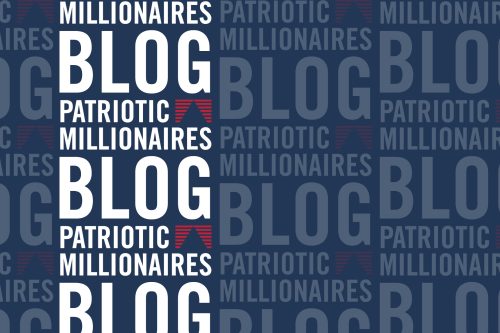The United States of America is a capitalist country. We have, on average, the highest standard of living of almost any country in the world and one of the reasons is that we do not try to have our economy planned out by some central authority. Call it “freedom” or call it “the invisible hand,” but our system works demonstrably better than any other system that has been tried any place in the world.
For example, if someone thinks that they have an idea for a new kind of ice cream that can sell for twenty dollars per pint, they do not have to convince some government official of need for their ice cream. They do need to convince someone (family, friends, professional investors, or even themselves) that their idea is likely enough to succeed to justify risking some of their savings (note that “capital” is a ten dollar word for “savings” in this context). They can make some ice cream and try selling it, and people can try it and decide if they think it is worth twenty dollars per pint. Maybe it will succeed and they will end up becoming millionaires and employing dozens of people. Maybe they will end up trying it for a few months and then going back to their regular jobs when it doesn’t work out. That is how our capitalist system works: they can decide if they want to risk their time and money starting a new business and I can decide if I want to spend money on their new ice cream. That is good. Many new businesses never make it, but those that do can provide jobs for many people, untold riches for a few entrepreneurs, and products (like premium ice cream) to Americans. This is the American way. The last thing I want is a directorate of ice cream promulgating a five year plan on what ice cream flavors our nation will have.
There is another aspect though. When I bought a cup of dill ice cream the other day from a guy who hopes he owns the next Ben and Jerry’s, I was risking ten dollars that I would not like his ice cream. I was not risking my health on the proposition that his ice cream is safe. I knew that the Food and Drug Administration (FDA) regulated the milk and eggs used in it, that his kitchen had been inspected and approved by the Health Department, and that he passed a licensing examination that required him to demonstrate an understanding of food safety procedures.
That is infrastructure.
Yes, infrastructure includes the roads, bridges and train tracks we have been talking about a lot lately, it also includes our society’s ability to enforce health and safety standards in many industries. That, by definition, requires a government with the power to enforce certain norms of behavior. If you want to make and sell ice cream, there are a bunch of things that society, through it’s elected representatives, requires you to do. Some people say that this is government interference in the free market, unelected bureaucrats interfering with the job creators. I don’t say that they are wrong. The United States government does interfere in the free market and that ultimately benefits us capitalists. If I wanted to sell ice cream, but I had to convince each customer individually that my ice cream would not make them sick, I would never be able to get rich. If I wanted to sell medicine and had to convince each person individually that my medicine was safe and effective, that would also not work. If I was in the car insurance business, I could not possibly convince each car owner individually that I invested their premiums in a way that would generate the needed money when they had to file their claims. If I decide to be in the asset management business, I don’t need to explain to potential clients how I make sure that my staff doesn’t cheat them by front running their trades.
Infrastructure is not just road and bridges. Infrastructure is all of the things that government does that individual capitalists could not possibly do for themselves.
Tourists from South America, who do not feel safe buying ice cream where they live, buy ice cream in New York because they know it is safe. Investors from West Africa invest in the United States, not because we have less government interference in the capital markets, but because we have more.
Capitalists and actual job creators need more government, not less.
“Pearls of Wisdom” is a regular feature on the Patriotic Millionaires Blog that highlights board chairperson Morris Pearl’s take on recent topics relevant to political and economic inequality.
